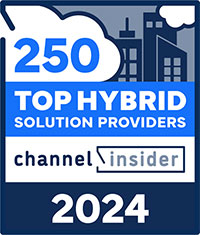Reliability of Your Cloud Platform

Reliable Cloud Platforms?
2019 has been filled with extensive outages from prominent cloud platforms including Google and AWS. These outages impacted huge numbers of end users and businesses. This resulted in a myriad of issues including missed opportunities and significant revenue loss.

With 2020 around the corner, it seems only natural that your company revisit the reliability of the infrastructure you have deployed in the public cloud.
Loss of Visibility and Accountability
It is inevitable that outages will happen. The critical question is how your company responds to an outage. Because you need to be accountable to your clients and end-users, you must have some level of control over your data. However, as data migrates into a shared cloud space, you lose visibility into its exact whereabouts, into the actual infrastructure that is supporting it. You are essentially losing control over your infrastructure.
If you are outsourcing your infrastructure, you are also outsourcing accountability. Your mission-critical data no longer lives in the server down the hall or in a nearby colocation facility. It is no longer monitored by people you can call by name, on the phone, or contact in the middle of the night. This loss of visibility and control has serious implications for businesses.
When an outage happens in the cloud, it can be exponentially more difficult to trace the source. Downtime can be much longer and costlier as a result. You may find yourself at the mercy of circumstances you cannot control or mitigate. This threatens your ability to be accountable to your clients and users.
Hybrid IT Option
Many companies today are born in the cloud but even for these companies there are some options that will maximize control, accountability and the ability to mitigate an inevitable outage. The solution lies in diversification or hybridization of one’s IT infrastructure. You can achieve this by adopting a hybrid IT or a multi-cloud strategy. A diversified approach allows you to achieve greater control and greater accountability as your company will no longer be outsourcing all of the accountability for your infrastructure.
When it makes sense to retain a significant amount of on-premises IT infrastructure, you can still improve the quality and efficiency of those operations by operating them as a private cloud.
Consider your options, most notably using Microsoft’s Azure Stack. By bringing consistent services on premises, you can run on your own hardware that meets its requirements. The benefit is that Azure is a proven platform with a vast ecosystem of third-party support and expertise available. If you don’t have the right skillset for Azure cloud, you may need help from outside experts.
The hybrid cloud is best defined as the combination of your public and private cloud assets, both on and off prem. A hybrid cloud is an effective way of hedging your bets on the big trends in technology. You may think a public cloud can do all you need for your organization. But, it is possible that some of the use cases for on-premises IT will take hold in your organization. A hybrid cloud environment gives you the resources, skillsets, processes, and tools to deploy new systems where they belong.
Contact Zunesis for an assessment on what strategy works best for you infrastructure.
Categories
Search
Blog Categories
Related Resources
Archives
- July 2024
- June 2024
- May 2024
- April 2024
- March 2024
- January 2024
- October 2023
- September 2023
- August 2023
- July 2023
- June 2023
- May 2023
- April 2023
- March 2023
- February 2023
- January 2023
- October 2022
- July 2022
- June 2022
- May 2022
- April 2022
- March 2022
- February 2022
- January 2022
- December 2021
- November 2021
- October 2021
- September 2021
- August 2021
- July 2021
- June 2021
- May 2021
- April 2021
- March 2021
- February 2021
- January 2021
- December 2020
- November 2020
- October 2020
- September 2020
- August 2020
- July 2020
- June 2020
- May 2020
- April 2020
- March 2020
- February 2020
- January 2020
- December 2019
- November 2019
- October 2019
- September 2019
- August 2019
- July 2019
- June 2019
- May 2019
- April 2019
- March 2019
- February 2019
- January 2019
- December 2018
- November 2018
- October 2018
- September 2018
- August 2018
- July 2018
- June 2018
- May 2018
- April 2018
- March 2018
- February 2018
- January 2018
- December 2017
- November 2017
- October 2017
- September 2017
- August 2017
- July 2017
- June 2017
- May 2017
- April 2017
- March 2017
- February 2017
- January 2017
- December 2016
- November 2016
- October 2016
- September 2016
- August 2016
- July 2016
- June 2016
- May 2016
- March 2016
- February 2016
- January 2016
- December 2015
- October 2015
- September 2015
- August 2015
- July 2015
- June 2015
- May 2015
- April 2015
- March 2015
- February 2015
- January 2014
- February 2013




